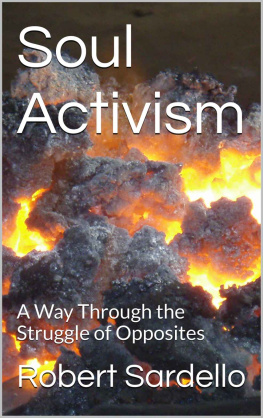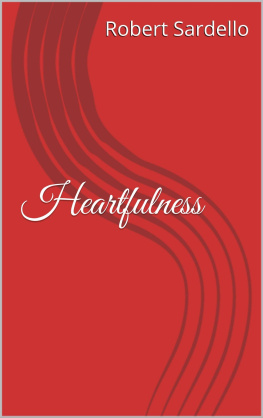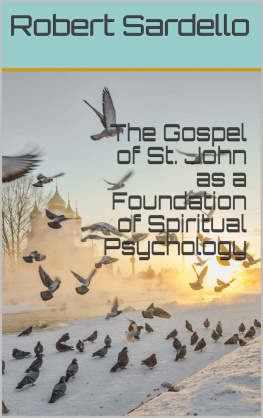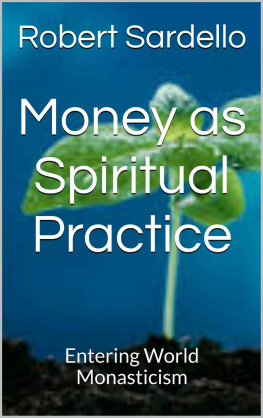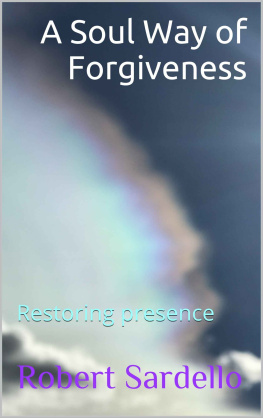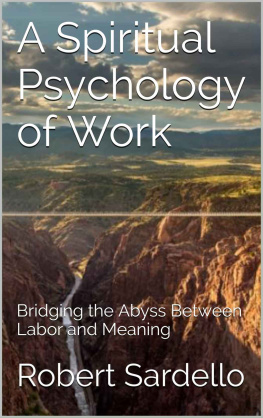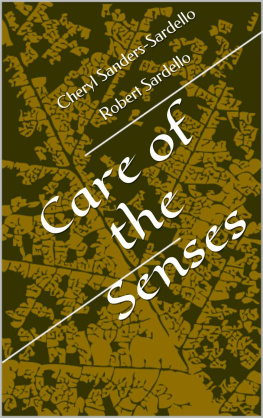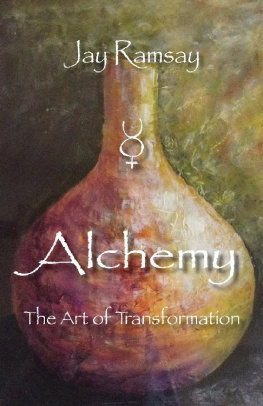Robert Sardello - Soul Activism: A Way Through the Struggle of Opposites (School of Spiritual Psychology Archives Book 1)
Here you can read online Robert Sardello - Soul Activism: A Way Through the Struggle of Opposites (School of Spiritual Psychology Archives Book 1) full text of the book (entire story) in english for free. Download pdf and epub, get meaning, cover and reviews about this ebook. year: 2016, publisher: Goldenstone Press, genre: Religion. Description of the work, (preface) as well as reviews are available. Best literature library LitArk.com created for fans of good reading and offers a wide selection of genres:
Romance novel
Science fiction
Adventure
Detective
Science
History
Home and family
Prose
Art
Politics
Computer
Non-fiction
Religion
Business
Children
Humor
Choose a favorite category and find really read worthwhile books. Enjoy immersion in the world of imagination, feel the emotions of the characters or learn something new for yourself, make an fascinating discovery.
- Book:Soul Activism: A Way Through the Struggle of Opposites (School of Spiritual Psychology Archives Book 1)
- Author:
- Publisher:Goldenstone Press
- Genre:
- Year:2016
- Rating:5 / 5
- Favourites:Add to favourites
- Your mark:
- 100
- 1
- 2
- 3
- 4
- 5
Soul Activism: A Way Through the Struggle of Opposites (School of Spiritual Psychology Archives Book 1): summary, description and annotation
We offer to read an annotation, description, summary or preface (depends on what the author of the book "Soul Activism: A Way Through the Struggle of Opposites (School of Spiritual Psychology Archives Book 1)" wrote himself). If you haven't found the necessary information about the book — write in the comments, we will try to find it.
Soul Activism: A Way Through the Struggle of Opposites (School of Spiritual Psychology Archives Book 1) — read online for free the complete book (whole text) full work
Below is the text of the book, divided by pages. System saving the place of the last page read, allows you to conveniently read the book "Soul Activism: A Way Through the Struggle of Opposites (School of Spiritual Psychology Archives Book 1)" online for free, without having to search again every time where you left off. Put a bookmark, and you can go to the page where you finished reading at any time.
Font size:
Interval:
Bookmark:
Soul Activism
Robert Sardello
Soul Activism encompasses a limitless array of things. However, what demands our current attention is singularly important the ongoing threat to its very existence in our contemporary world. To state this more clearly, I am not referring to soul in any religious sense. Nor am I referring to it in any of the ways that have become more fashionable because they have achieved a clique-ish accessibility that is so simplistic that it expresses cleverness at the expense of genuine depth.
I suggest that an understanding Soul Activism urges us to observe the manner in which the life of the Soul is simultaneously endangered yet relentlessly unfettered. And ultimately, an enlightened aspiration would lead us to live graciously in our dangerously narrow culture without being wholly captured by it, dismembered by it. Imagine it this way: We are living in a hospice and we must learn to heal ourselves and our fellow sufferers as well as the entire world itself!
This, of course, sounds outrageous, and it presents a challenge unlike any other. It demands that we cultivate our life in silence and consciously experience soul life. The latter option eschews all notions of for or against, and (literally) transcends polarity. And we must first be quite clear that the usual sensibility prevalent today is thoroughly materialistic. As an example, even ideas circulating around spirit and soul are based on benefits, things that will make us healthier and happier more fulfilled . This is all still a rampant form of materialism. Thus, instead, we must begin to think of Soul Activism as the practice of allowing impulses to enter into our space of activism that are always alive in the world but are not of the physical world.
Most essentially, part of what we must do is re-engage our senses in ways that make them literally jammed with the radiance of the spiritual world. When we do this, we are addressing our own tragic dismemberment and the barren carnality of a bruised and nearly obliterated physical world. It is calling out for our attention, our healing. And in listening to its pain, we experience the personal and communal healing of our own pain. In this vast cosmic echo chamber, we can make whole what has been sundered. Put simply, there is no my soul versus your soul. There, instead, is only one unified community of longing. And this communal strain yearns for the soul element and, in order to perceive that element, a degree of subtlety is required. Namely, we must begin to perceive soul in everything without identifying it with anything that smacks of specificity.
For instance, when we look at something occurring in the world and feel dissatisfied with what is happening, it is our soul aspect that feels dissatisfied. If we are highly dissatisfied, then it is easy to imagine the possibility of joining some sort of protest, or of becoming an activist. However, dissatisfaction, even when felt deeply, does not form a viable basis for activism. An interesting experiment is to imagine a world, or a place in the world in which all the desires, all the wishes which one feels for society are allowed to play their part. Such a place will inevitably be a place that you would not consider a pleasant place to live. Thomas Moore did exactly this when he wrote his famous book, Utopia . If you read Moores work, you will discover the world he conjured is not utopian at all.
Say you are deeply opposed to a war and feel it is entirely unjust. It is not sufficient to imagine the world without that war, and, thus, opt to join a protest. While that would seem to be following your soul sensibility, this can hardly be called Soul Activism. What is more advisable is to become an activist on a deeper level. This means taking an event in the world with which you feel strong dissatisfaction and bringing it into meditation. Then you are able to contemplate it deeply.
For example, we may have very immediate feelings of dissatisfaction with the way the McDonalds franchise gets its eggs. It purchases them from chicken farms that keep animals in stacked and overcrowded pens. This situation was actually the basis for the work of activist groups. They (rightly) felt repugnance at animals being treated this way. However, it is not only possible, but important, to work with this situation at a deeper soul level. If you take it deeper, you will go beyond the personal soul level and begin to have an inner experience of the life of the animal soul in relation to the whole of the earth and, indeed, the cosmos. You will begin to inwardly have a sense of what treating animals in this way does on a larger (cosmic and spiritual) scale. As you do so, feelings of anger and dissatisfaction, surprisingly, will go away. They dissipate because, while in deep contemplation, one becomes present to the animal soul being contemplated. And a sense of the soul of the animal brings us to a level beyond likes and dislikes. Thus, the desire to protest, to become an activist in the usual sense disappears.
The question, though, is, how does one express these experiences at a deeper soul level? It would seem that a completely different kind of activism is needed. One for which I do not think there is a form.
At this deeper level, spontaneous thoughts, feelings, and images arise. But these are abstractions. Instead, it would be wise to get a few chickens. Keep and care for them and notice, with meticulous attention, their habits and their needs. Such care enters the subtle currents of the world. Then, another variety of activism arises. It is interesting to contemplate what would occur if keeping a few chickens became commonplace. This would be change!
******
Activism is a social act, not just an individual act. For example, I found it interesting to observe Desmond Tutu taking a stance against war. His way of speaking about war was quite interesting. He noted that this particular war was an unjust war. Now that statement might be one that expresses the individual soul, a statement of immediate feeling. But there was no trace of reaction in what he was saying. He did not say, for example, that we must unite against this war and go out into the streets and protest. (Tutu is, as you know, not a man who would be against such protests.) He went on, however, and spoke of America as a country of great generosity, and it is perceived that way by people in many parts of the world. He was articulating something of the deeper soul- and spirit-nature of America and he was speaking of how this particular war defiles that spirit. At that moment he touched into an entirely different level of activism. This level requires us to say that a nation is not the same as the collection of individuals who reside in that nation. Instead, he perceived things with great nuance. He knows that each nation has a soul, and the urges to activism are based in a sense of the Folk Soul of that particular nation.
Every people, as a people not as individuals every Folk Soul has a mission, a destiny. Every nation has its own destiny and the destiny of each nation forms a mosaic, a whole, that, in turn, emerges as the destiny of humankind. And, in particular times, particular epochs, one or more nations may have a particular responsibility of carrying the soul aspects of that time period. In Rudolf Steiners terms, for example, we are currently in the fifth post-Atlantean epoch, and this epoch is the epoch of the English-speaking countries with all that accompanies that kind of soul, such as: Logic, scientific thinking, commerce, industrial thinking, individuality and technology. In other words, all that we have seen come into the world since the 15 th century. This translates as a soul desire for the direction we see so prevalent in the world. This epoch, with its vast passion for precision, focuses on outer things.
So perhaps surprisingly, its fascinating to arrive at an extraordinary observation. The purpose of this (past) training is to engender an observation of the (current) processes of inner life. For example, the mission of this time, if it is to be in connection with the deep spiritual soul, excludes an exaggeration of power in any economic realm. Additionally, the mission of this time excludes war. War itself it not inherently wrong. But the mission of this time is for the development of human beings and the expansion of their soul capacities.
Next pageFont size:
Interval:
Bookmark:
Similar books «Soul Activism: A Way Through the Struggle of Opposites (School of Spiritual Psychology Archives Book 1)»
Look at similar books to Soul Activism: A Way Through the Struggle of Opposites (School of Spiritual Psychology Archives Book 1). We have selected literature similar in name and meaning in the hope of providing readers with more options to find new, interesting, not yet read works.
Discussion, reviews of the book Soul Activism: A Way Through the Struggle of Opposites (School of Spiritual Psychology Archives Book 1) and just readers' own opinions. Leave your comments, write what you think about the work, its meaning or the main characters. Specify what exactly you liked and what you didn't like, and why you think so.

